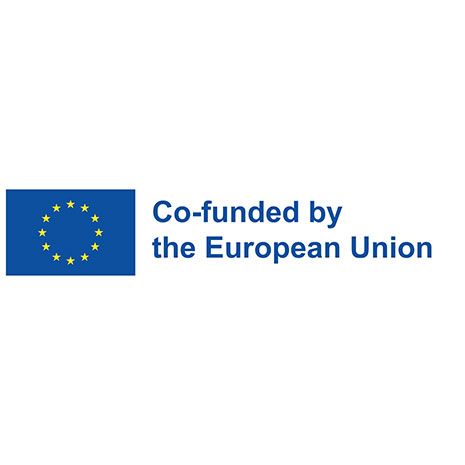

The transnational project EPSILON with partners from Germany, Portugal, Cyprus and Lithuania addresses the needs of European Data Science for Social Good initiatives and higher education institutions with degrees in Data Science. The EPSILON team has designed tailored workflows and tools for European Data Science for Social Good initiatives. It has also set up a European Knowledge Platform and established a new Data Science Lab in Lithuania. The experience and knowledge gained through this have been transformed into target group specific and free-to-use learning materials for students, university teachers and Data Science enthusiasts.
PR1 focused on assessing the landscape, challenges, and requirements of Data for Good initiatives across Europe. This phase involved a comprehensive benchmarking process to identify existing initiatives, best practices, and gaps in knowledge, infrastructure, and collaboration. By gathering insights from volunteers, NGOs, and higher education institutions, PR1 provided a detailed understanding of the support structures needed to enhance the efficiency and impact of European DSSG initiatives. The findings were compiled into a Benchmark Report, offering guidance on the organizational, technical, and educational resources required to sustain and expand Data for Good activities. This analysis served as the foundation for the development of the Knowledge Platform, training materials, and business intelligence tools, ensuring that the EPSILON project’s subsequent outputs were aligned with real-world needs.
PR2 focused on developing a centralized digital resource to support Data for Good initiatives across Europe. The Knowledge Platform serves as an open-access hub, providing structured workflows, best practices, and essential resources for volunteers, NGOs, and higher education institutions engaged in data-driven social impact projects. Alongside the platform, the Business Intelligence Toolkit was created to offer analytical tools that help organizations measure their impact, optimize project management, and enhance decision-making processes. Designed for accessibility and usability, these resources ensure that both new and existing initiatives can efficiently structure their operations, improve collaboration, and maximize their contributions to digital transformation and social good. The platform also includes an interactive map showcasing existing European Data for Good initiatives, fostering networking and knowledge exchange among stakeholders.
PR3 focused on establishing the first Data for Good initiative in Lithuania, creating a sustainable framework for volunteer-driven data science projects with social impact. The resulted in the creation of a new Data Science Laboratory at Vilnius University. The Data Science Laboratory is set to become a regional centre for scientific research, idea generation, discussion and applied research in the field of Data Science. The lab cooperates with local social good organisations that aim to evaluate and develop their processes more efficiently and have data for analysing problems and finding their solutions. It has already been utilized by student working groups for several DSSG projects to successfully support a local dog shelter.
PR4 focused on developing high-quality educational resources to support students, educators, and professionals in applying data science for social good. The project created modular learning materials, including presentations and instructional videos, designed to accommodate both beginners and advanced learners from diverse academic backgrounds. These resources were integrated into the curricula of several participating universities and made openly accessible through the European Knowledge Platform. Feedback from students, lecturers, and data science experts was continuously incorporated to refine and improve the content. By providing structured, adaptable, and practical learning materials, PR4 ensured that Data for Good concepts could be effectively taught in higher education and professional training programs, fostering long-term engagement and knowledge transfer in the field.
Digital Transformation describes a staggering task for our society and access to relevant knowledge is limited. The increasing demand for technical and methodological expertise in combination with domain knowledge significantly impacts the European job market. In this vein, a new job description as well as a new string of education emerged: Data Science. As access to expertise in Data Science is sparse, all over Europe qualified volunteers are organized as regional or national initiatives to address the fact that social organizations in Europe do not have sufficient access to relevant knowledge and tools in order to adequately address Digital Transformation. Organized in regional or national teams, volunteers support social organizations to make use of their data by connecting them with volunteer data scientists and analysts. This idea goes back to the initiative “Data Science for Social Good”, founded in Chicago, and inspired experts all over Europe to organize similar initiatives in their regions. Leading initiatives in Europe are Data Science for Social Good (Germany, UK and Portugal), Data for Good (Denmark, France, Poland and Spain) and Correlaid (Germany and France).
Although a few initiatives in Europe do already exist, every initiative is individually organized and there are no European open resources comprising workflows and best practices for Data for Good initiatives. Groups are mostly organized in local or national heterogenous teams and are established by individual initiatives. Due to the fact that the demand for expert knowledge in the field of Data Science has been increasing, students and professionals need access to target group specific courses, and higher education institutions need access to customized learning material that takes into account different scientific backgrounds.
Nova School of Business and Economics is a Public Higher Education Institution, a school focused on Management, Economics and Finance, and is an organic unit of the Nova University of Lisbon. Nova SBE was the first European institution organizing the Data Science for Social Good (DSSG) Summer Fellowship, back in 2017 - a partnership with the University of Chicago. This is a full-time summer program to train aspiring data scientists to work on machine learning, data science and AI projects, with social impact, in a fair and equitable manner. The program was hosted by the school again in 2018 and, in 2019, Nova SBE joined forces with the DSSG Foundation and supported the replication of the program at Imperial College London and at Warwick University, kicking-off a series of different DSSG chapters across Europe. Nova SBE implemented various data science related projects, partners, and events and, in 2019, Nova SBE formally established its Data Science Knowledge Center (DSKC), that aims to advance knowledge about data-driven decision-making and ist aimpact on society. As of today, DSKC supports a team of more than 70 researchers, faculty members, PhD and Masters students that, together, develop impactful data solutions for companies, Government and social impact organizations
The Software Engineering and Internet Technologies (SEIT) Laboratory is an integral part of the Department of Computer Science of the University of Cyprus. SEIT focuses its research activities on two important areas of Information Technology, namely Software Engineering and Internet Technologies. In the second area, the Laboratory concentrates its expertise on the development of ICT-enabled Creativity and Enhanced Learning Environments, platforms and tools. SEIT has extensive experience in the area of applying ICT to Technology Enhanced Learning (e-Learning, m-Learning, Blended Learning and Open and Distance Learning) in general, as well as Lifelong Learning in particular. This expertise is both at technical level and at developing policies and qualification frameworks for such activities.
Vilnius University is the largest University in Lithuania involved in multi-disciplinary academic activity. This is one of the oldest higher education institutions in the Eastern and Central Europe (founded in 1579). During more than four centuries of its existence, Vilnius University (VU) grew into the leading University in Lithuania. The University retains its leading role in a broad spectrum of fundamental and applied research, education, training and retraining, consultancy, providing research and development services to a wide range of businesses. VU actively participates in international scientific and academic activities and embodies the concept of a traditional university – the integrity of research and education. VU takes the responsibility to maintain the highest level of education and research sustained by its research teams of international acclaim and new teams led by talented young researchers. This way, VU fulfils the needs of the state and society in the European research and education area. VU also seeks to ensure annually increasing involvement in European research and educational programs.
Data Science for Social Good Portugal (DSSG PT) is a non-profit association based in Portugal, with the objective of building an open community of data scientists, data lovers and data enthusiasts that want to tackle problems that really matter. DSSG PT’s goal is to connect people who have data skills with institutions that work on projects with social impact, such as charities, public administration entities and non-profits. Together, the association helps them collect and transform data into actionable knowledge to ultimately increase their impact. DSSG PT’s approach is twofold: first, it engages the Portuguese data science community in data projects aimed at delivering high value products to relevant social good initiatives; second, it fosters the discussion of the social and ethical implications of data science in the society, through events (talks, roundtables, workshops, etc.) The volunteers’ community is over 400 members strong, mostly based in Portugal, working together in our initiatives, usually in our long-term projects (3-6 months). These projects are an initiative designed and managed by DSSG PT together with a beneficiary, with well-defined goals. DSSG PT is also a part of a network of European Data for Good organizations, in which monthly meetings are developed to share knowledge about each association’s goals, challenges and processes.
Duration
01.02.2022 – 31.01.2025
Funding
Erasmus+ Cooperation Partnership
(2021-1-DE01-KA220-HED-000029711)
Partners
Vilnius University (Lithuania)
University of Cyprus (Cyprus)
Universidade NOVA de Lisboa (Portugal)
Associated Partner: DSSG PT (Portugal)

- CorrelAid - Data4Good (Berlin)
- Data Science for Social Good (Berlin)
- DATA for GOOD Foundation (Denmark)
- DSSGx Munich Fellowship Programme
- Free eBook: R for Data Science
- Free eBook Collecion: The Big Book of R
- Free eBook: Python Data Science Handbook
Follow #epsilonproject on LinkedIn!
